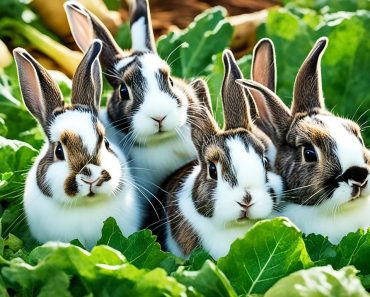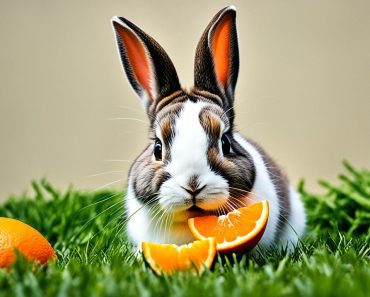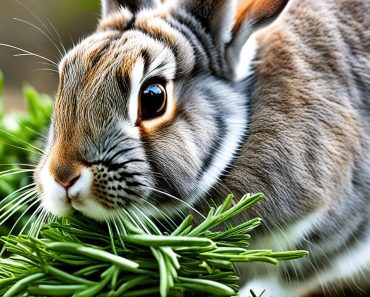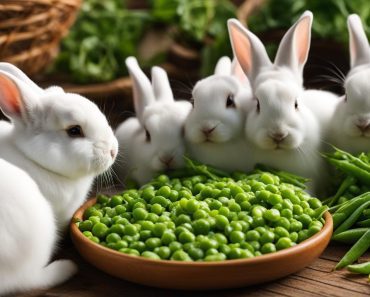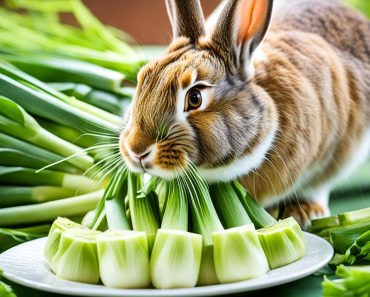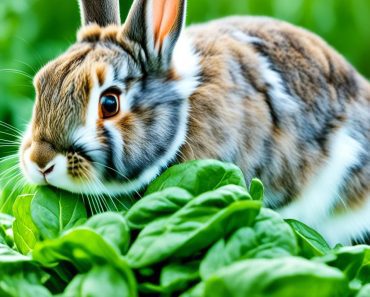As a rabbit owner, I understand the importance of providing a safe and balanced diet for my furry friend. One question that often arises is: can rabbits eat tomatoes? The answer is yes, but with some important considerations.
According to pet nutritionist Samantha Henson, tomatoes can be given to rabbits as an occasional treat. However, it’s crucial to be mindful of their sugar content and the potential toxicity of certain parts of the tomato, such as the leaves and seeds. To ensure your rabbit’s safety, it is recommended to remove all leaves, stems, and seeds before feeding a tomato to your pet.
Monitoring your rabbit’s behavior and poop is also important after introducing tomatoes into their diet. Watch for any negative reactions or gastrointestinal issues, as not all rabbits tolerate tomatoes well. It’s best to start with a small acorn-sized amount of seedless tomato per day and gradually increase if there are no adverse effects.
While tomatoes can be a tasty treat for rabbits, it’s essential to remember that they should only be given in moderation. They should not replace the staple components of a rabbit’s diet, such as hay, leafy greens, and rabbit pellets.
Can Rabbits Eat Tomatoes? Yes, they can consume it as an occasional treat.
- Tomatoes can be given to rabbits as an occasional treat, but it’s important to remove all leaves, stems, and seeds before feeding.
- Monitor your rabbit’s behavior and poop for any negative reactions after introducing tomatoes into their diet.
- A small acorn-sized amount of seedless tomato per day is considered safe for rabbits older than 12 weeks.
- Remember that a balanced rabbit diet consists of primarily hay, supplemented with fresh leafy greens and a small portion of rabbit pellets.
- Be sure to provide a variety of safe fruits and vegetables as treats, while avoiding foods high in sugar and starch.
The Importance of a Balanced Rabbit Diet
Rabbits require a balanced diet to maintain their overall health. To ensure your rabbit stays happy and healthy, it is essential to pay close attention to their diet. Let’s explore the key components of a well-rounded rabbit diet.
The Role of Hay
Hay plays a vital role in a rabbit’s diet and should make up approximately 80% of their daily intake. Good quality hay or grass is rich in essential fiber, which promotes proper digestion and supports dental health. Chewing on hay helps wear down a rabbit’s continuously growing teeth naturally. Additionally, the constant chewing stimulates saliva production, aiding in overall digestion.
Providing a variety of grass hay, such as Timothy, Oaten, or Meadow hay, ensures your rabbit receives the necessary nutrients and fiber for optimal health. Remember, a constant supply of hay is essential for the well-being of your furry friend.
Fresh Leafy Greens
In addition to hay, it is crucial to incorporate fresh leafy greens into your rabbit’s diet. These greens provide essential nutrients and help prevent boredom. Some examples of rabbit-friendly leafy greens include dandelion greens, kale, and watercress.
When introducing new leafy greens, start with small quantities to allow your rabbit’s digestive system to adjust gradually. As leafy greens are prone to wilting, ensure freshness by offering them to your rabbit within 24 hours. Remember to wash the greens thoroughly before serving to remove any potential pesticides or dirt.
Rabbit Pellets
While hay and fresh leafy greens form the foundation of a rabbit’s diet, a small quantity of high-quality rabbit pellets can be included. However, rabbit pellets should not exceed 5% of the rabbit’s daily food intake to prevent overconsumption.
When choosing rabbit pellets, opt for those specifically formulated for adult rabbits. These pellets contain the necessary vitamins, minerals, and nutrients to supplement their dietary needs. Remember to check the ingredients list and avoid pellets with added sugars or artificial additives.
Keeping an eye on your rabbit’s weight is crucial for their overall well-being. Overweight rabbits may suffer from various health issues, such as obesity and dental problems. Avoid overfeeding by monitoring portion sizes and adjusting accordingly based on your rabbit’s weight management needs.
A balanced rabbit diet consisting of hay, fresh leafy greens, and a small portion of rabbit pellets will provide the necessary nutrition for a healthy and happy rabbit. By prioritizing their dietary needs, you can ensure your furry friend thrives.
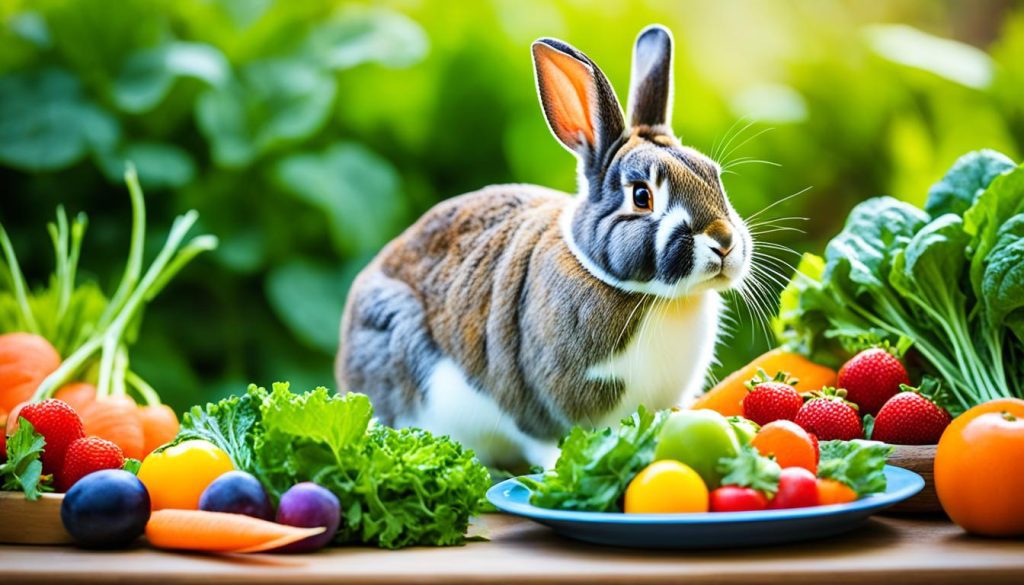
Safe Foods for Rabbits
When it comes to providing a balanced diet for your beloved rabbits, it’s essential to include safe and rabbit-friendly foods. While tomatoes can be given as an occasional treat, there are many other options that can be a regular part of their diet.
One category of rabbit-friendly foods is fruits. Fruits such as apples, bananas, pears, strawberries, blackberries, and blueberries are safe and can be enjoyed by your furry friends. Just make sure to remove all seeds and pits before feeding them to the rabbits.
Another category of rabbit-friendly foods is vegetables. Cucumbers, zucchini, capsicum, celery, and carrots (in moderation) are all great options that can be included in their daily meals. Leafy greens like lettuce, kale, and spinach are also highly recommended, as well as herbs like basil and mint.
While it’s important to know what to feed your rabbits, it’s equally important to know what to avoid. Foods like muesli-style rabbit mixes that are high in sugar and starch should be avoided. Other foods to steer clear of include nuts, corn, beans, peas, bread, cake, biscuits, sugar, chocolate, and breakfast cereals. These foods can be harmful to rabbits and should not be included in their diet.
By providing a variety of safe fruits and vegetables, you can ensure that your rabbits receive the necessary nutrients while enjoying their meals. Remember, a well-balanced diet is crucial for their overall health and well-being.
The Role of Hay in Rabbit Digestion
Hay plays a vital role in a rabbit’s digestion and overall health. Rabbits have teeth that continuously grow, and chewing on hay helps wear down their teeth naturally. Additionally, hay is essential for maintaining the proper movement of the rabbit’s intestinal tract. Low-fiber diets can lead to bloat and other digestive issues.
Rabbits are hindgut fermenters, meaning their digestion relies on a large caecum to ferment fiber and extract essential nutrients. Providing a constant supply of good quality grass and grass hay, such as Timothy, Oaten, and Meadow hay, is essential for a balanced rabbit diet.
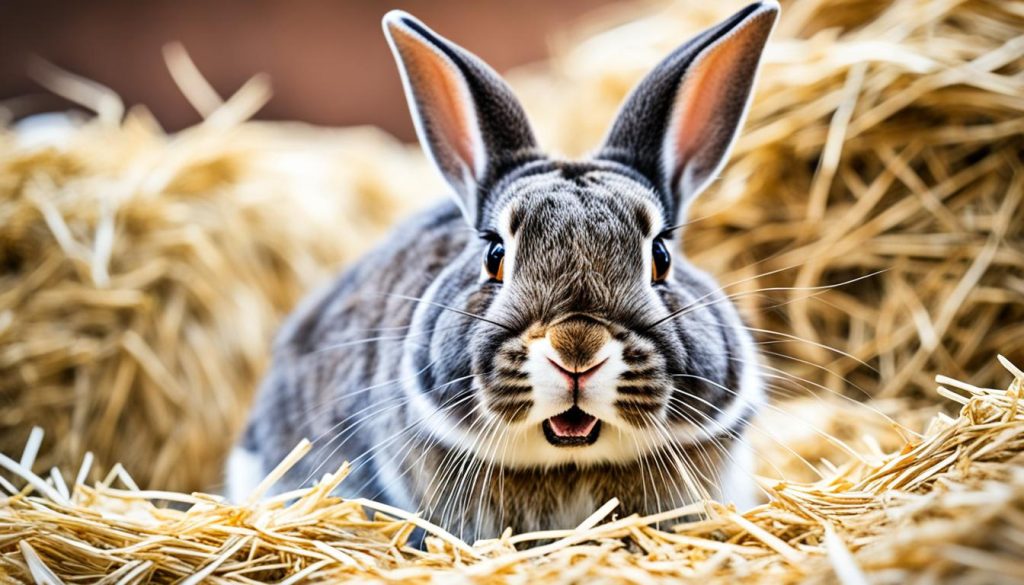
Conclusion
When it comes to feeding tomatoes to rabbits, it’s important to exercise caution and responsibility. While tomatoes can be given as an occasional treat, it’s crucial to consider their high sugar content and potential toxicity of certain parts of the tomato. To ensure the safety of your furry friend, always remove all leaves, stems, and seeds before offering a tomato to your rabbit.
When it comes to a balanced rabbit diet, hay or grass should be the primary component. Make sure to provide your rabbit with good quality hay or grass, which not only supports their dental health but also aids in proper digestion. Fresh leafy greens, such as dandelion greens and kale, should also be included daily to provide essential nutrients and prevent boredom.
In addition, it’s important to offer a small portion of high-quality rabbit pellets to ensure your rabbit receives all the necessary nutrients. However, these pellets should not exceed 5% of their overall diet. When choosing treats for your rabbit, opt for a variety of safe fruits and vegetables while avoiding foods that are high in sugar and starch.
By following these rabbit diet tips and practicing responsible feeding, you can provide your rabbit with a nutritionally balanced diet that meets their needs. Remember to monitor your rabbit’s behavior and consult with a veterinarian if you notice any unusual reactions. With proper care and attention, you can ensure that your rabbit remains healthy, happy, and well-nourished.

